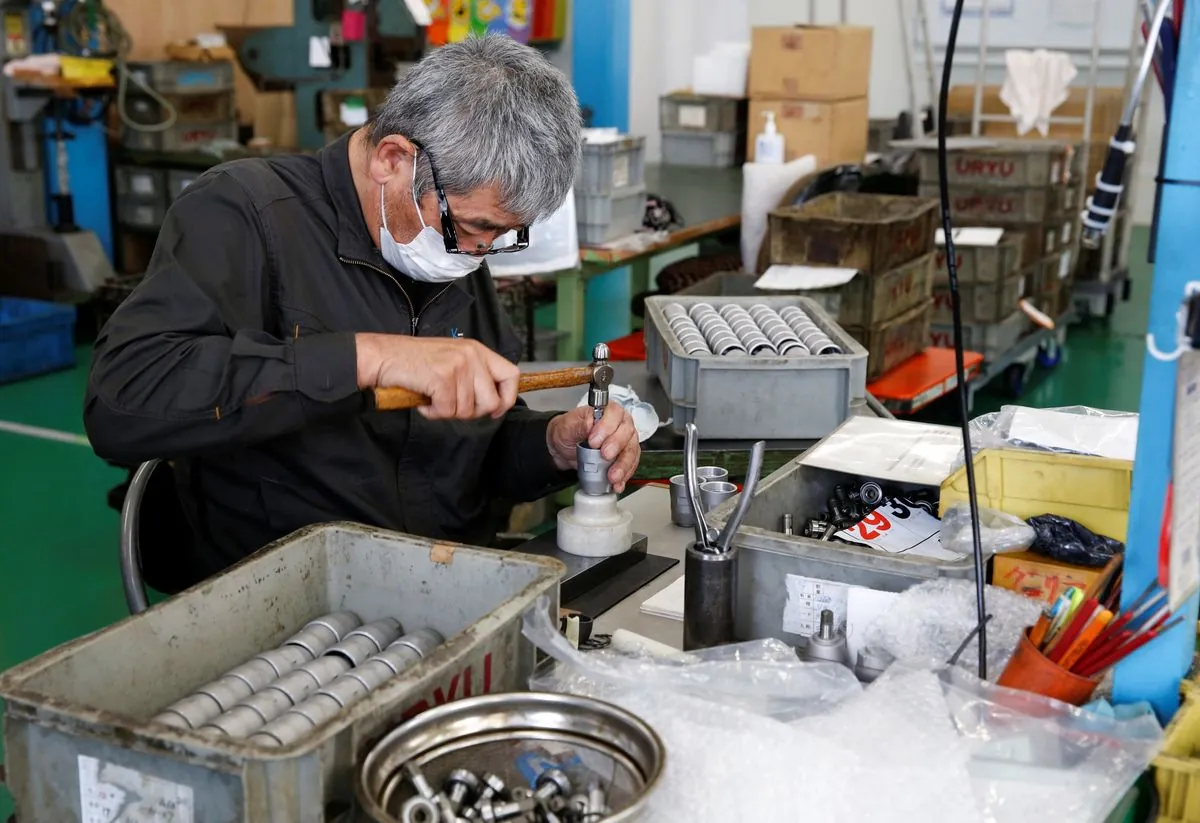Japan's Business Sentiment Stable, BOJ Weighs Economic Indicators
Japanese business confidence remains steady, with manufacturers stable and service sector improving slightly. Companies plan increased capital spending but remain cautious about future outlook amid global uncertainties.

The Bank of Japan's latest tankan survey, a crucial economic indicator first established in 1957, reveals a stable business sentiment in Japan for the quarter ending September 2023. This comprehensive survey, which gathers responses from over 10,000 companies, provides valuable insights into the country's economic landscape.
Kazuo Ueda, the BOJ Governor, and his team will closely analyze these results as they prepare for their upcoming meeting on October 30-31, 2024. The tankan, short for "Tanki Keizai Kansoku Chousa," is conducted quarterly and is renowned for its high response rate of over 99%, ensuring reliable data for policymakers and economists worldwide.
The survey's diffusion index, which ranges from -100 to +100, showed that large manufacturers' sentiment remained unchanged at +13, aligning with market expectations. This stability suggests that the manufacturing sector is weathering various challenges, including global economic uncertainties.

In the service sector, sentiment improved slightly to +34, surpassing forecasts. This uptick can be attributed to increased profits in the retail sector due to price hikes. However, the outlook for the next three months appears less optimistic, particularly for non-manufacturing firms.
Takeshi Minami, chief economist at Norinchukin Research Institute, noted, "Despite the yen's rebound since mid-July, big manufacturers' business sentiment remains unexpectedly solid."
The tankan survey also revealed that large companies plan to increase capital expenditure by 10.6% in the fiscal year ending March 2025. This figure, while lower than the previous quarter's projection, still indicates a positive investment outlook.
Inflation expectations remain a key focus, with companies anticipating inflation to stay above the BOJ's 2% target for the next one, three, and five years. This aligns with the central bank's view that Japan is progressing towards sustainable price growth.
The BOJ's recent monetary policy shifts, including ending negative interest rates in March 2024 and raising the short-term policy rate to 0.25% in July 2024, reflect the central bank's confidence in the economy's trajectory. These decisions were influenced by previous tankan results and other economic indicators.
Masato Koike, senior economist at Sompo Institute Plus, observed, "Momentum among non-manufacturers could have already faded, including hotels and restaurants that had been boosted by inbound tourism."
The yen's fluctuations continue to impact various sectors differently. While a weaker yen benefits exporters and inbound tourism, the recent rebound may alleviate some pressure on retailers and households facing rising import costs.
Japan's economy showed resilience in the second quarter of 2024, expanding at an annualized rate of 2.9%. This growth was supported by steady wage increases and consumer spending. However, challenges remain, including soft demand from China and slowing U.S. growth, which could affect Japan's export-dependent industries.
As economists and policymakers digest the tankan results, attention now turns to the next survey, due on December 13, 2024. This data will be crucial for the BOJ's policy meeting scheduled for December 18-19, 2024, as they continue to navigate Japan's economic recovery and monetary policy decisions.
The tankan survey, with its comprehensive coverage of various industries and its inclusion of small and medium-sized enterprises, remains an indispensable tool for assessing Japan's economic health and guiding policy decisions in an ever-changing global economic landscape.


































